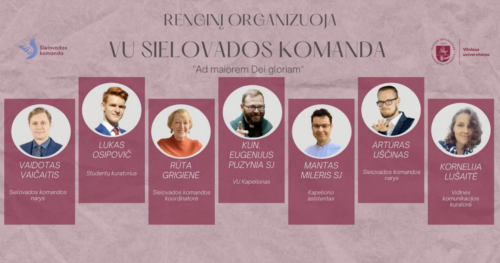This essay first appeared in our weekly newsletter on August 17, 2024.
You can be forgiven for wondering if we’ve read the same Gospel three Sundays in a row. All three are taken from the “Bread of Life Discourse” in John 6. Two weeks ago, Jesus said, “I am the bread of life” (24-35). Last week, he said, “I am the living bread that came down from heaven” (41-51). And this week, Jesus says again, “I am the living bread that came down from heaven” (51-58).
Clearly, the church considers this an essential passage for understanding who Jesus Christ was for the disciples and who Jesus is for us today.
I’m writing this reflection as I look out over the Atlantic Ocean, in Cape May, a town on the shoreline of southernmost New Jersey. Now, I usually dislike it when people mention their vacations in Gospel reflections or homilies, because it tends to make people jealous. But if it makes you feel better, I’m getting only one week’s vacation this year! In any event, in the past few days I’ve been thinking a lot about how Jesus nourishes us.
We’re built so that what is naturally refreshing is also something we enjoy and desire. The spiritual life is a lot like that.
At 63, I’m not much of an athlete, but I try to keep in shape. And when I’m “down the shore,” as we Philadelphians say, every other morning I run a mile or so and then jump into the ocean for a swim. Afterwards, I don’t think anything tastes as wonderful as a glass of ice-cold orange juice. And every morning, I think: Isn’t it amazing how our bodies are made this way? We’re built so that what is naturally refreshing is also something we enjoy and desire.
The spiritual life is a lot like that. We naturally desire God, the ultimate nourishment. That’s simply the way that we are built. We desire union with God in our daily lives, union with others who seek God and, ultimately, the eternal union that Jesus promises us in today’s Gospel.
But we want other things, too, which aren’t as nourishing. That’s where vanity and greed come in. We want wealth, fame and power. In his “Spiritual Exercises,” St. Ignatius Loyola astutely identifies this progression as “riches to honors to pride.”
We have some type of riches (money or talent or a position) which leads to honors (people’s admiration or esteem) which leads to pride (and usually a desire for more). These things seem appealing on the surface but are not nourishing at all. I’d like to eat chocolate-chip cookies every night on vacation but, in the end, that wouldn’t be good for me.
Part of the discernment over what is nutritious and what is not falls under the rubric of what St. Ignatius calls the “Two Standards.” Typical for a former soldier, St. Ignatius asks us to imagine a battleground where you can choose to fight under different “standards” or flags.
A life of choosing to follow Jesus is ultimately healthier and will lead you to more happiness.
One standard is that of “the world” or even Satan, which tempts you to want a life of “riches to honors to pride.” The other is the standard of Jesus Christ, who asks us to follow him in a life of service and humility.
Frankly, the choice seems depressing when laid out that way. Is it really just a choice between greed or some sort of humiliation? But that’s not what Ignatius meant. He knew that Jesus was, in a word, right!
A life of choosing to follow Jesus as nearly as possible, of letting his life of humility and his words about service nourish you, is ultimately healthier and will lead you to more happiness. That’s the “standard” to choose. Put it this way: Do you want food that will keep you healthy or junk food that will destroy you? As today’s First Reading says, “Come, eat of my food and drink of the wine I have mixed!”



